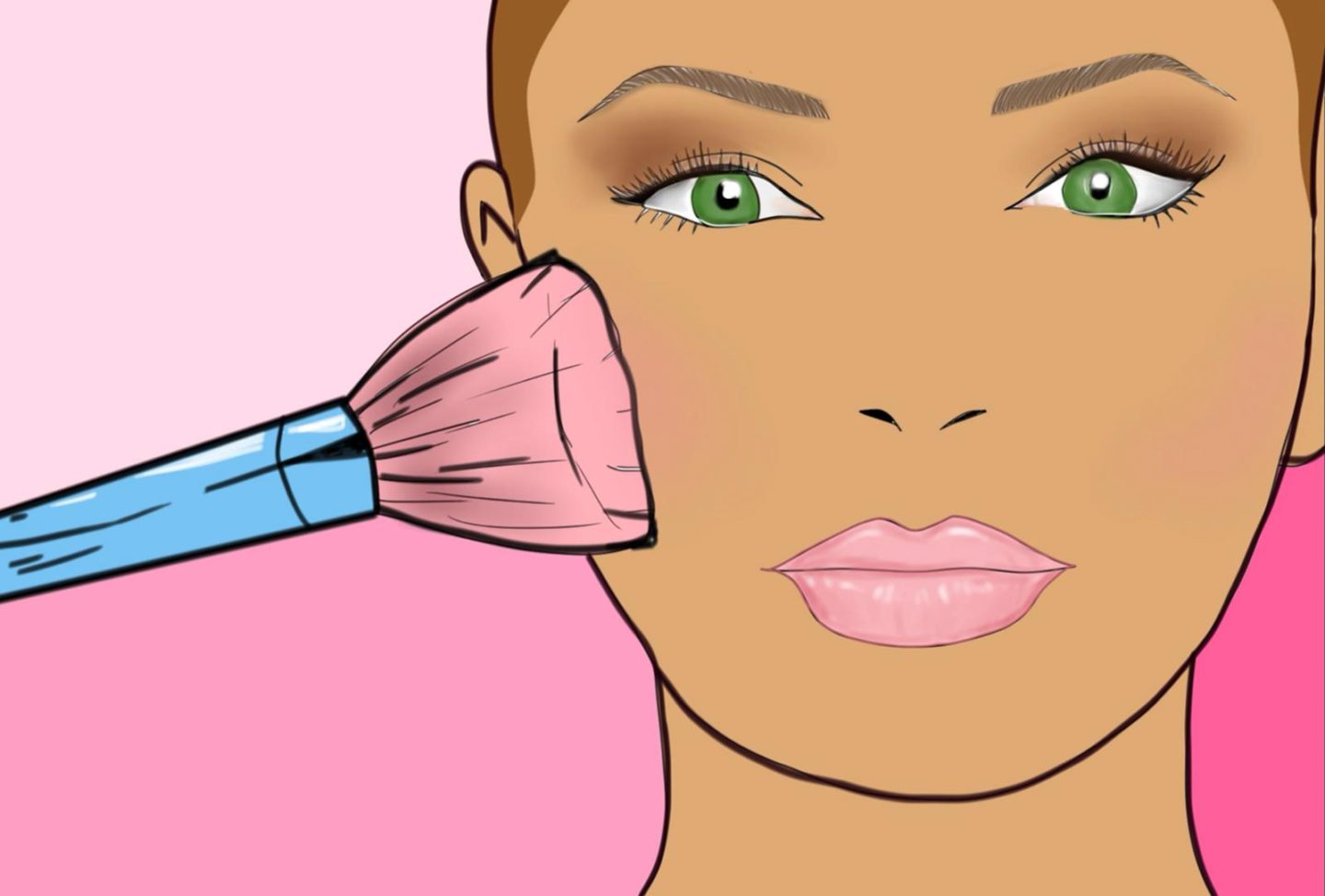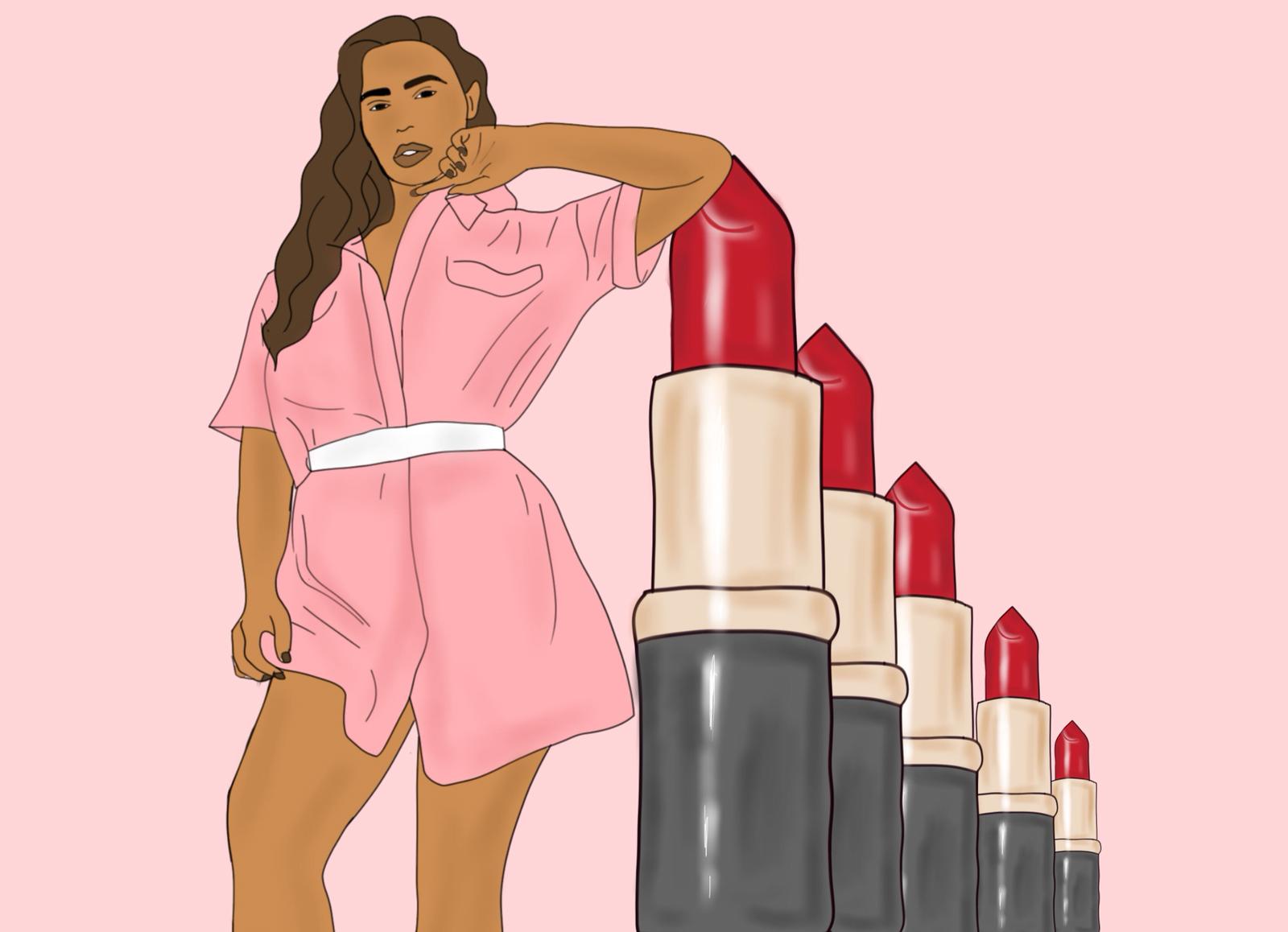When I started my first contracted job at eighteen, I used to go full warpaint every morning. It made me feel confident in the idea that for the first time ever I wasn’t just earning pocket money. I was a career girl. It was empowering. As it’s probably possible to tell, the allure wore off pretty quickly. Around three weeks in of not wearing makeup to work for an extra hour in bed, my manager pulled me aside and casually reminded that where I worked “tended to pride themselves on high appearance standards.”
A case of professional integrity
According to The Cosmetics Conundrum, a study on perception in the workplace, women that wore a ‘professional’ amount of makeup came across as more ‘prestigious’ than those who took their bare face out for a spin on Monday morning. Similarly, in a study by US cosmetics giant Procter & Gamble in 2011, when viewing images of women in various states of maquillage, participants were more likely to rate makeup-wearing women as “attractive”, “competent” and “trustworthy” in comparison to their bare-faced peers.
There’s an element of the ridiculous to it. In an era characterised by cosmopolitanism and choice, where we’re supposedly beyond policing individualism, it’s terrifying that so many workplaces incorporate the idea that a bare face is unacceptable. Of course, men end up with similar restrictions: employers frequently demand clean-shaven features and a short back and sides. But the implication that natural skin is unsatisfactory in some way seems ingrained into dress codes. This complicates the relationship between suitability for the modern workplace and female objectification.
Not wearing makeup to work: The illusion of choice

I’m not saying that we should all immediately learn to love our naked faces and turn up to work as nature intended, makeup free. It’s the idea of choice and the illusion of professionalism, relative to appearance, that needs more attention. There are times where I’ve worn lots of makeup to work. When I was first working as a fashion writer this year, I worked eyeshadow and contour so heavily that I looked like a Borzoi. It made me feel more confident in such a big, scary new role.
I’ve both worn and not worn makeup to Starbucks jobs, academic jobs, freelance jobs. And on one occasion, a job where I dressed up as a fairtrade banana. The act of covering such a vital and natural part of yourself feels like an act of armouring when you’re nervous or insecure (and that’s nothing to be ashamed of). Living in a terrifying Brexit limbo, we’re in six different kinds of debt and beset by social media’s beauty standards in a more invasive and powerful way than ever before. Sometimes it’s nice when leaving the house, in order to face the world, to smear on an extra layer between you and whatever hideousness that particular Thursday is looking to throw at you.
It’s the absence of choice that sits ill alongside a modern view of women in the workplace. The notion that the idea of perceived attractiveness can alter a hiring or promotion process undermines everything this century has taught us about emancipation. It’s not difficult to see the old evil of the male gaze rearing its head and grizzling at us from the water cooler: the implication is that for you to be a successful worker, the invisible, potential client has to consider you of conventional attractiveness.
Negative energy and positive change
A survey by US beauty e-tailer SkinStore reports that women spend around $300,000 on beauty products in their lifetime. The enormity of the figure translates to around $8 a day; more than most of us would spend on food. Considering it’s often the lowest-paid workers who are most at the mercy of strict dress codes, the debate lends itself to another significant crisis point in 21st-century society. The cost of being female by far exceeds that of being male.
The notion that cosmetics are required even for minimum wage work is an energy hangover from the last century, where breaking out of aesthetic recognition was a struggle for working women. I worked a bar for a year during my PhD and I was told to look “insta-ready” for every shift. Not wearing makeup to work was unacceptable, despite the fact I could have pulled a pint with a naked face just as well as I could as if I was done up for the MET Gala. For perspective, a man I worked with came into work in the same pair of jeans every shift.
Moving forwards
It’s a complicated dichotomy to navigate, between cosmetics as self-expression and policing the female body. Demanding women come in not wearing makeup to work runs the risk of undermining their confidence and identity. Demanding a made-up face exposes them to gender inequality and objectification. Leaving the option open is undoubtedly the best policy but it too opens up a world where the choice itself is seen as indicative of character and competence.
The working world is slowly, shudderingly getting better for women. In 2018 we finished with more degrees than ever before but we’re still less likely to make entry-level corporate roles. Men are still 21% more likely than women to make it into managerial positions. Compulsory cosmetics are a contentious, curious little issue that many of us are going to have to stare down. And yet it’s rarely in receipt of the media exposure it perhaps warrants. In light of the huge changes in ideology happening already this century, it’ll be interesting to see where it goes.
Find more beauty articles here >
Written by Hannah Parkes Smith
Illustrated by Francesca Mariama


Good write up
Thanks!